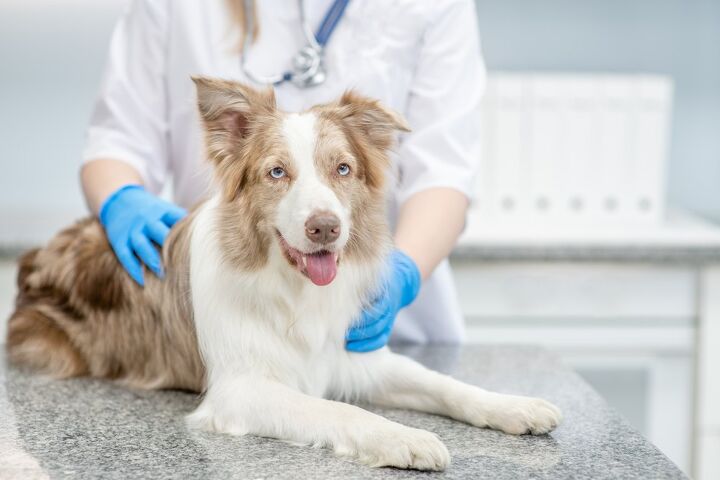Urine Tests Could Now Provide Early Detection of Cancer in Dogs

Cancer doesn’t discriminate – it affects all creatures around the world, including our cherished pets. Learning that your dog has cancer can be such a devastating thing, but sadly, it is so common nowadays. John Robertson, research professor in the Department of Biomedical Engineering and Mechanics at Virginia Tech says in his interview for WTOP News that “one in four dogs will be diagnosed with cancer,” and that “by the time they’re middle-aged, 50% of dogs will die of cancer after the age of 10 years.”
Professor Robertson is part of a vast research team that has developed an innovative new noninvasive rapid test that utilizes a dog’s urine and allows potential early detection of cancer.
“Usually, when a dog gets diagnosed with cancer, it’s usually quite advanced, with visible signs — we’re trying to detect cancer before these physical symptoms appear,” said fellow researcher Ryan Senger, associate professor in the Department of Biological Systems Engineering. “Cancer is going to change overall metabolism inside the body, and it’s going to change the way the kidneys function, which can be observed in the urine screening process,” Senger added.
Through samples of dog urine, the research team discovered that cancerous subjects amongst the observed molecules had a unique “fingerprint” that could be used to indicate the presence of cancer. “We would like to be able to have dogs screened earlier, before cancer develops, throughout their lifetime, perhaps a once-a-year urine specimen,” said Robertson. “That tells us what the molecular fingerprint of the urine is, so if it changes and falls into that realm of fingerprints that define cancer, we’d be able to pay more attention to figure out what’s going on with the dog.”
Robertson also added that there are 12 breeds of purebred dogs that have a much higher incidence of cancer. “We’re going to focus on being able to institute early, regular screening that’s going to help pick up earlier when they’re developing cancer, in the hopes that we can get better outcomes.”
However, veterinary care is typically subsidized by the owner, Robertson emphasized, which is opposite to medical care, which is often paid for by insurance. “So, we intend to make our tests readily available at a price point that everyone can afford to regularly have their dog examined and screened.”, the professor added.
Robertson said that urine screening is currently being researched, to determine whether it could be applied to humans as well, potentially bringing great changes to the discovery of cancer cells.
The team’s findings were published in Frontiers in Veterinary Science and make us very optimistic for the future of preventive veterinary medicine – an inexpensive, accurate way to screen for a potentially fatal illness could be life-changing for so many pets and their owners. Not to mention the implications if such a test could be adapted to be used on humans, as well!

A proud mama to seven dogs and ten cats, Angela spends her days writing for her fellow pet parents and pampering her furballs, all of whom are rescues. When she's not gushing over her adorable cats or playing with her dogs, she can be found curled up with a good fantasy book.
More by Angela Vuckovic























